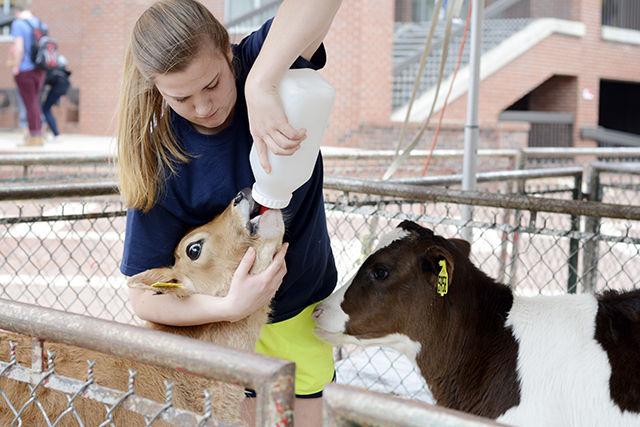Testing on animals is a controversial subject that can sometimes make people’s blood boil. The opposition usually argues that it is inhumane and harmful to the animals while supporters argue that animal testing is necessary to further scientific discovery.
Here at NC State the College of Agriculture and Life Sciences and the College of Veterinary Medicine use animals for research, education and the training of future veterinarians. The research focuses mainly on biomedical and agricultural areas while some might oppose the use, according to the Institutional Animal Care and Use Committee, the university is in full compliance.
The IACUC is responsible for regulating how the university uses animals and ensuring that animal use in studies is humane and in accordance to federal and state laws, as well as NC State rules and policies.
“NC State is going above and beyond what is required by the federal regulations and the standard guidelines accepted by the National Institution of Health’s Office of Laboratory Animal Welfare and the United States Department of Agriculture,” said Judy Schledorn, the regulatory compliance administrator for NC State. She is required to go to all inspections.
At least two voting members of the IACUC inspect areas where animals are kept and worked on every six months. It also has the authority to suspend research if it finds that animal mistreatment is taking place. The committee members are also required to report on any health and safety issues about animals or humans and can make suggestions on how to improve the area where animals are kept.
Regan Lane, a sophomore studying animal science, explained how every project involving animals must be approved through the IACUC, and inspections of university’s use of animals are regularly conducted. She said she believes it is “pretty well monitored.”
Lane said that everyone who is involved in the program has to go through training courses on animal treatment to be properly certified.
“Because everything is strictly monitored, there is nothing sketchy going on,” Lane said. “If there is any wrongdoing, it would be caught and stopped.”
Jonathan Riggs, a senior studying animal science, described the IACUC online courses as being very thorough. He said students cannot work with the animals until the courses have been passed, and the students are always supervised while handling animals.
“These courses are important because you don’t want people mishandling your animals,” Riggs said.
Riggs also said the university is strict when it comes to the care of animals, and that it is heavily watched by the IACUC. The university works to treat its animals better than what laws and regulations require.
According to Riggs keeping the animals calm and making sure they are not overstressed is of the upmost importance to the faculty and staff.
Riggs described a current research project at the NC State Small Ruminant Unit where researchers are hoping to develop a better protocol for artificial breeding that will make reproduction more efficient. He said this is a noninvasive type of experimentation because the sheep and goats involved in the study are not harmed in the process.
Stewart said that this project is important because it will help widen the population of goats in Haiti.
“I know for a fact that our farm is exceptional,” said Anna Stewart, a sophomore studying animal science. “Our animals are very happy. We spoil them a little bit.”
After an animal as gone through its respective research study, there are a few things that might happen to it. Animals that were used in any type of invasive experimentation, or in a study where there was pain and distress are typically euthanized. Animals used in non-invasive experiments may sometimes be transferred to another active research project, adopted, sent to livestock sales, or transferred or loaned to another institution.
“Animal welfare is the priority,” Riggs said.








